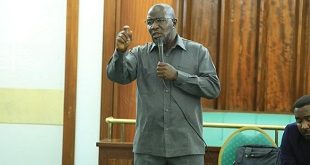

Kampala, Uganda | THE INDEPENDENT | Parliament plans to set up an electronic system that will allow members of the public who are unable to deliver their petitions physically in Kampala or through legislators to do so electronically.
The plan is among the 25 targets Parliament has set for the 2019/2020 to 2024/2025 financial years. The targets were agreed upon during the Third Annual Legislature Sector Review on the 2018/2019 financial year.
The targets are attached to the five objectives for the sector, increased efficiency and effectiveness in the enactment of legislation, strengthened institutional capacity of Parliament, improved citizen participation and contribution in promoting rule of law, transparency and accountability and also strengthened collaboration and networking amongst development institutions.
Josephine Watera, the Assistant Director Monitoring and Evaluation, says the proposed petitioning system is in line with Parliament’s desire to improve and increase public participation in parliamentary business.
Watera says that apart from the electronic petitioning system, the ICT Department is also expected to design an application to allow input of the public into the legislation process and undertake stakeholder mapping during the processing of bills.
However, David Pulkol and a former legislator and Executive Director of the Africa Leadership Institute-AFLI, noted that the proposed system should also have a tracking mechanism and provide feedback on the final decision on the petitions.
Olivia Nalule, a teacher at Atlas Secondary School, Gayaza asked whether the public will be facilitated to participate in processing Bills and petitions among other businesses to be handled by Parliament.
Watera said that Parliament has limited resources, which can’t allow for the facilitation of public participants but they can give information to their area MPs and capitalize on parliament outreach programs.
Apart from the targets relating to increasing public participation, others include setting sanctions against entities that do not adhere to parliament resolutions, set realistic targets for committees and departments in line with available funds, amend necessary legislation to provide for a Panel of Speakers to ensure continuity of plenary in the absence of the Speaker and Deputy Speaker.
Watera adds that the Office of the Clerk has been tasked to immediately profile all statutory reports currently in Parliament to ascertain backlog and also ensure responsible committees expeditiously handle them.
There is also the desire to enhance institutional capacity by introducing measures to strengthen evidence based support to legislative processes as well as improving the working environment of MPs and staff.
Watera also says the capacity of MPs will also be enhanced through continuous induction as well strengthening the whipping system to improve average attendance in plenary from 40 in the 2018/2019 financial year to 60 in the next two years.
The proposal for continuous induction and training was made by Gomba West MP, Robina Rwakojjo who complained that MPs cannot be blamed for low quality of debate when they have not been trained.
She said there is need to regulate operations of parliamentary fora because some of them duplicate the work of committees such as the forum of climate change.
Parliament also has to improve on its budget performance. For instance, the National Planning Authority’s assessment report on the Certificate of Compliance for the annual budget 2018/2019 financial year noted the legislature sector has a low absorption capacity for the new chamber project.
*****
URN
 The Independent Uganda: You get the Truth we Pay the Price
The Independent Uganda: You get the Truth we Pay the Price


